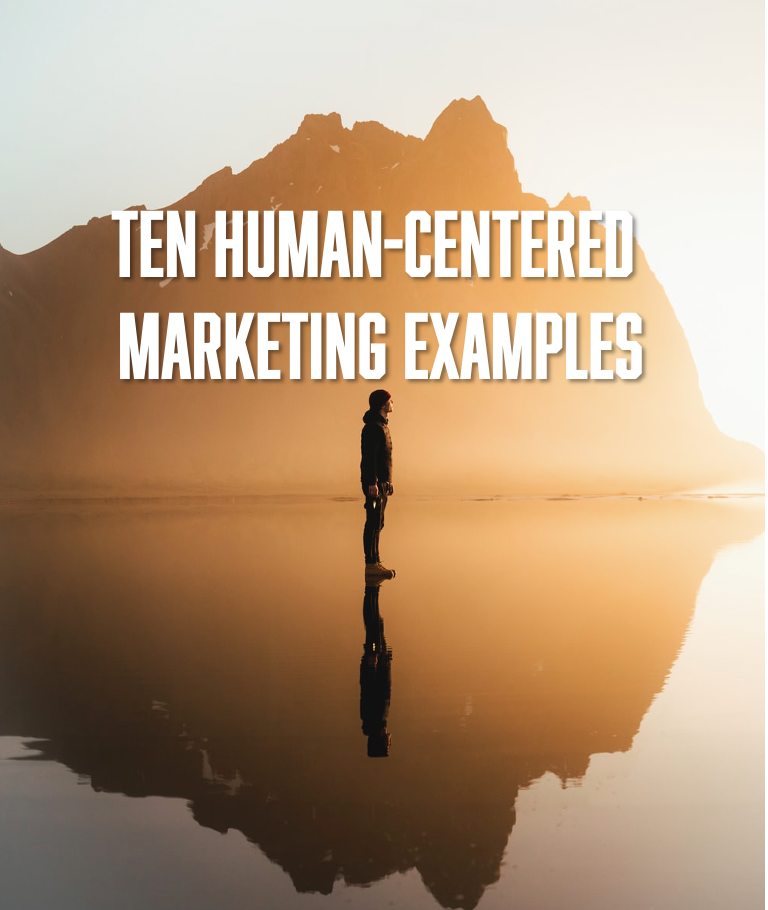
When I wrote Marketing Rebellion, I proposed that in the end, “the most human company wins.” I believe in our hearts we all seek communion with real humans, and to the extent we can do that with our companies, we’ll survive and thrive these perilous times. The book is a call-to-action for human-centered marketing!
Since then, the pandemic has amplified the need for this authentic human connection. People have been isolated, fearful, and anxious for months. Some readers have told me that my book is “coming true” as companies abandon their advertising scripts to roll up their sleeves and connect with people at their point of need.
Today, let’s look at a few diverse examples of how companies demonstrate human-centric marketing.
The heart of human-centered marketing
If you’re wondering what I mean by human-centered marketing, the main idea is building an emotional connection with our consumers that is respectful, helpful, authentic, meaningful, and personal … maybe even vulnerable. We don’t annoy, we don’t interrupt, we don’t manipulate. Come alongside consumers to help them at their point of need.
I went out to my friends on LinkedIn and asked them for human-centric marketing examples. I was looking for case studies that:
- Feature company leaders and employees in their marketing in an authentic way.
- Are rolling up their sleeves and truly helping people at their point of need.
- Are not just “in a community,” but OF a community.
Ironically, the first response I received was the opposite of what I was looking for:
Rooted in our purpose of “serving the greater good of our communities”, our leaders at XYZ have led with humanity, balancing employee need alongside the demands of the business. They’ve approached everything from news coverage to security to mental health with a human-centered lens that has kept employees motivated, audiences informed and clients happy.
This is not “human.” This is a press release!
By the way, if you want a free Human-Centric Marketing Manifesto, I created a colorful, hand-drawn manifesto you can see here and download for free. No strings attached. Just take it and hang it in your office!
So let’s get on to these 10 great lessons in human-centric marketing …
1. Do what normal people do
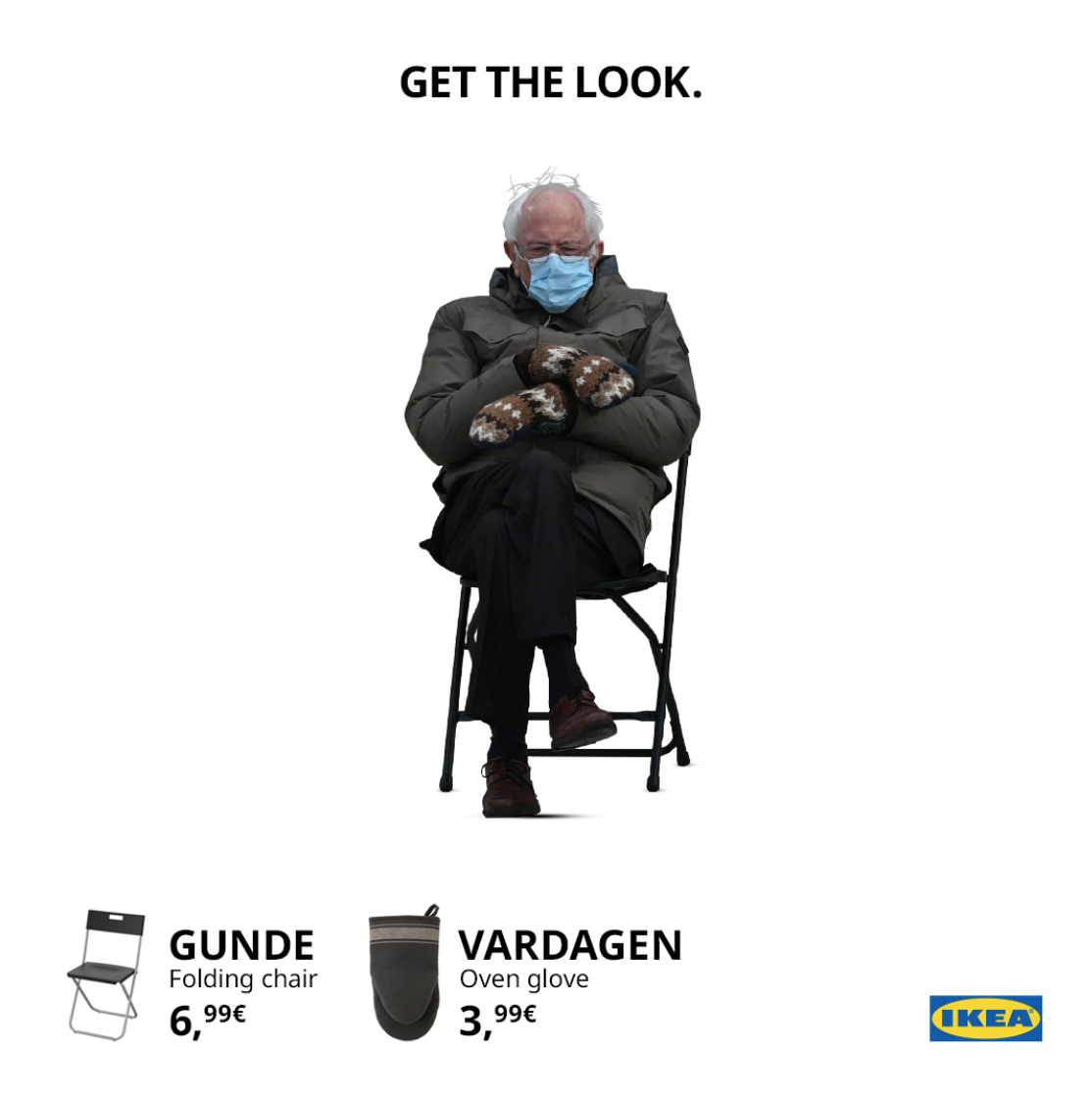
What it does: IKEA is a big box furniture retailer.
Why I love it: After the U.S. presidential inauguration, this hyper-memed image of Bernie was everywhere, adding some smiles to a dreary period in U.S. history. IKEA’s agency, Ogilvy, jumped on the opportunity with perfect timing. A day too late, and it would have fell flat as a “me too.”
I like this because so many ads just look like … well, ads. This looks like something a clever friend of mine would post — so it’s welcomed. It’s organic to a customer’s experience instead of something that interrupts and annoys. It provides relevance to a cultural moment.
Today, the customer is the marketer. This is an ad that will be shared and discussed … as I just proved.
![]()
2. Boots on the ground
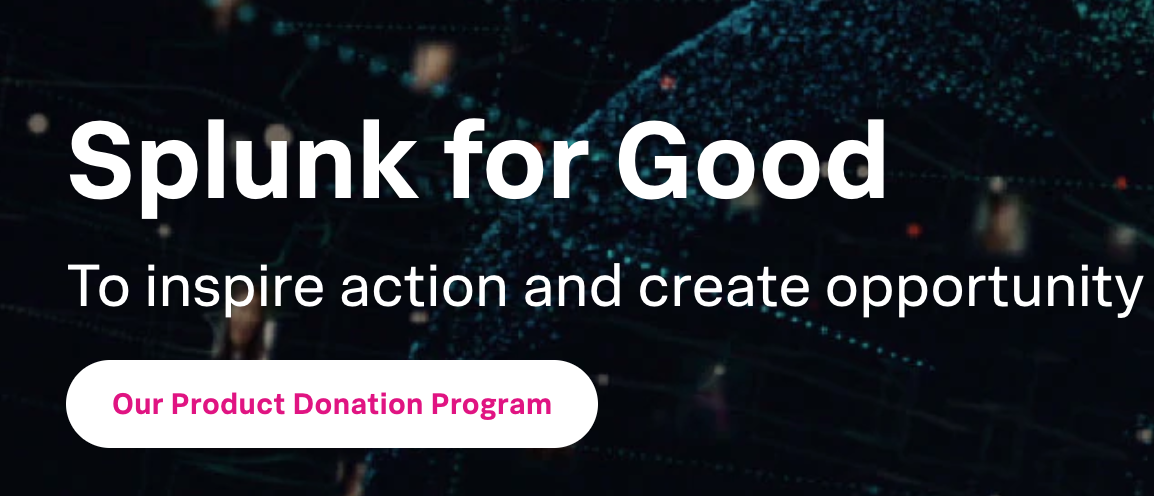
What it does: Splunk is a cloud transformation company with a wide range of IT and data security products.
Why I like it: One of the hallmarks of human-centered marekting is “boots on the ground.” Don’t just lend a hand — Be the hand. Show up!
Splunk provides employees with many opportunities to contribute to their communities but what I like best is that they are not just donating time and money to charity. They are using the company’s core IT strengths to enable positive transformation in many ways.
For example, Splunk supports NetHope, a consortium of nearly 60 leading global nongovernmental organizations (NGOs) that deliver more than 60 percent of all international, non-governmental aid.
Splunk uses its core technology to help NetHope:
- Aggregate data from NGO members and make it available as a shared resource
- Create a system to let the team manage and maintain gear across the globe
- Provide partners with the first-ever mechanism to measure the impact of humanitarian operations
Splunk isn’t just checking a box. They are using their strengths to actively make a difference.
![]()
3. Help at the point of need
What it is: Kiolbassa is a Texas-based purveyor of premium smoked meats.
Why I love it: Kiolbassa is a family-run business with a long history of community partnerships. But when the pandemic hit, they jumped into action with the speed of an emergency agency.
They realized people were hit hard economically and might not have access to enough food. Kiolbassa committed to donating 10,000 pounds of sausage per month to those who needed it most. Their fully-cooked smoked sausage can be consumed right out of the package — no preparation necessary — making it an ideal product for community agencies.
I also liked the way they created fun, special packaging to explain the effort in a friendly way:
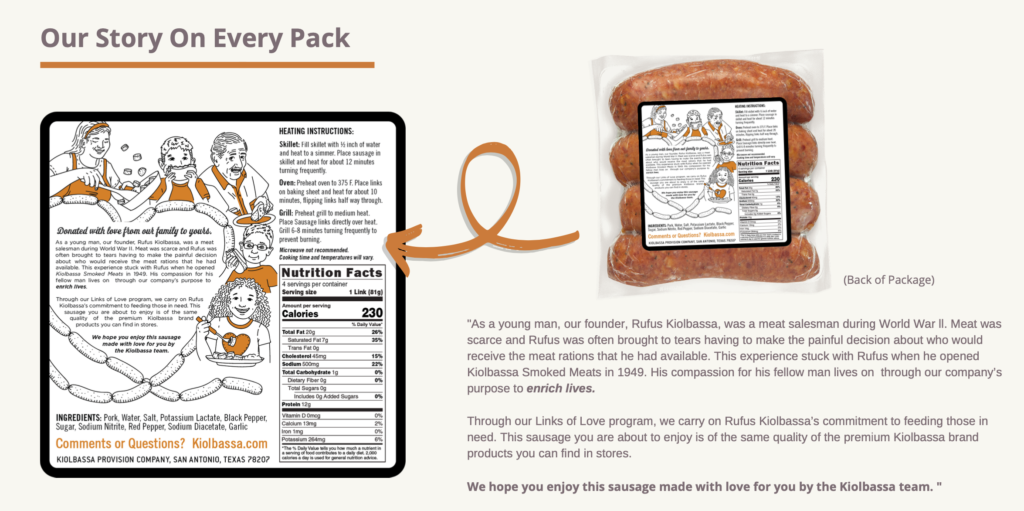
![]()
4. Be a real person
What it is: Porchlight is a book distribution and marketing service.
Why I love it: When I go to a company’s “About” page, this is what I expect:

But at Porchlight, this is the website image of Aaron Schleicher, their sales director. If you have a problem, you can contact him directly:
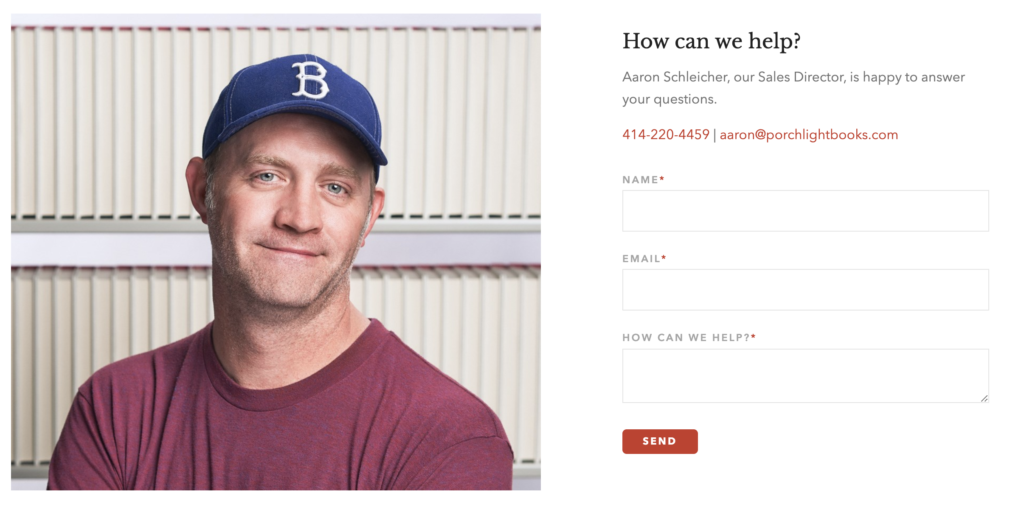
There is just something disarming about this simple photo. It’s unpretentious … like Aaron is meeting you out for a beer or to toss a baseball around with you. It’s just so HUMAN.
When I consult with clients, I urge them to look at every customer touchpoint — every email, meeting, call center, website — and find ways to make it more human. Add real people, real smiles, real passion. This photo shows that it’s just not that hard to take a step toward human-centered marketing!
![]()
5. Be vulnerable
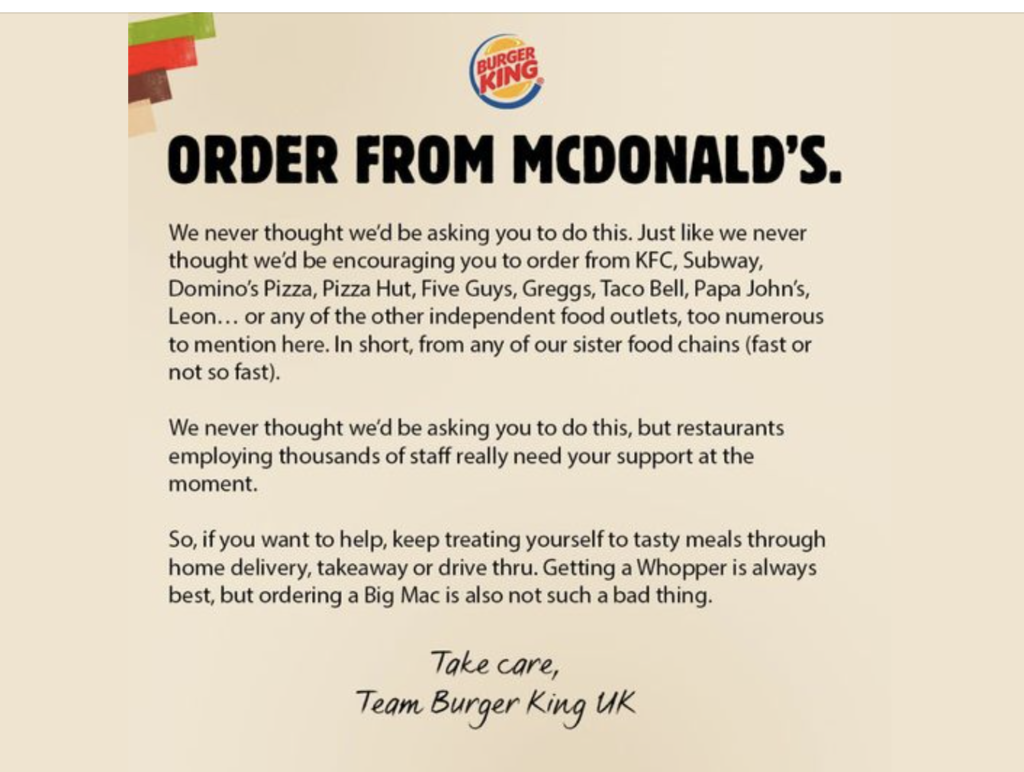
What it is: Burger King is one of the largest burger chains in the world.
Why I love it: Burger King is known for its disruptive ads and relentless snark. But during the pandemic, the company lowered its guns and created this ad that is more than sensitive. It’s actually vulnerable.
For a moment, BK is saying, you know … we’re all in this together … we really are. Help us.
Believable and human.
![]()
6. Put your money where your mouth is
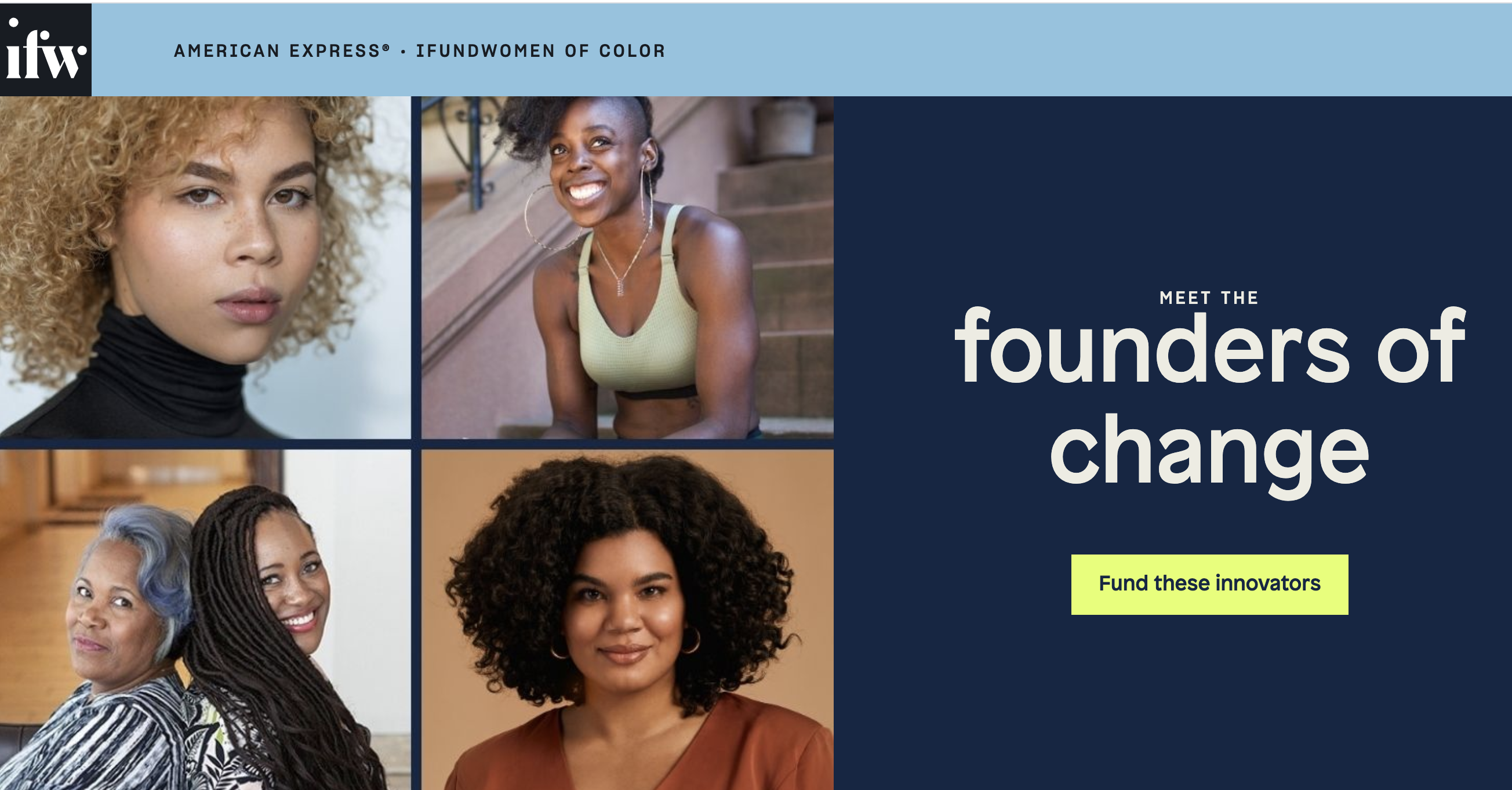
What it is: American Express is one of the world’s largest financial institutions.
Why I love it: Amex found an urgent human need that could uniquely be addressed by their company.
Research showed that Black-owned businesses are facing some of the greatest pandemic-related challenges:
- About half of Black-owned small and mid-sized business owners had to pivot during the pandemic.
- From February to April 2020, Stanford found the number of Black businesses dropped more than 40 percent, compared to 22 percent overall.
- American Express found that Black, women entrepreneurs were founding 763 new businesses every day – making them the fastest growing entrepreneur group in America — yet many do not have equal access to the resources they need to thrive and grow.
A few weeks ago, American Express surprised 100 Black female entrepreneurs with grants of $25,000 and 100 days of resources – including business education, mentoring, marketing, and virtual networking – to help them jump start and grow their business ventures.
So simple. People took a hit during the pandemic. Let’s help fix it.
Why is this important? Great branding means building an emotional connection between your audience and what you do. When millions are out of work, scared, and even hungry, it makes sense to take a portion of your marketing budget and just help people.
They’ll never forget that, will they?
![]()
7. Activate everyone
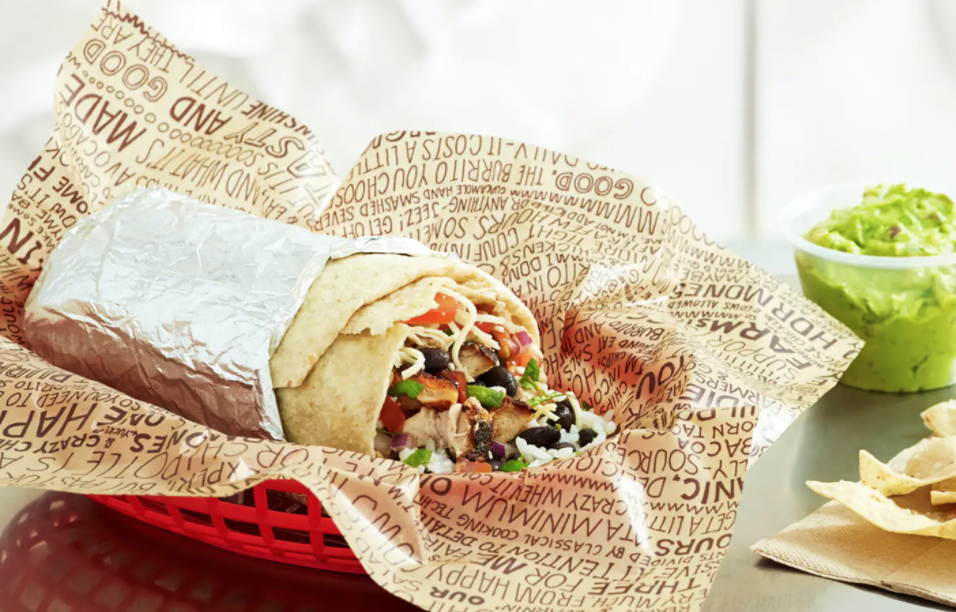
What it is: Chipotle is a U.S.-based provider of delicious and healthy fast food.
Why I love it: The company activated all available resources to respond to customer needs during the pandemic.
As soon as the crisis took hold, Chipotle turned every marketing employee into a “culture hunter.” The message was: “Stop what you’re doing. Listen to our customers and figure out what we need to be doing to help RIGHT NOW. Give us your ideas.”
Employees talked to customers and scoured social media for ideas. How can Chipotle connect in a meaningful way right now?
- Employees discovered that teens were sad because proms and graduations were canceled. So, the company hosted online celebrations.
- People were bored during lockdowns. Chipotle created a concert series.
- Many people were lonely. The company created a lunch club where you could connect to other people and have celebrities drop in for a chat.
Chipotle completely reimagined its marketing presence to be the most human company in the restaurant business. They activated direct customer connections through their rewards program to stay in touch with their fans in a meaningful way.
And here is a remarkable result. While nearly every food chain suffered during the crisis, Chipotle — a restaurant with no drive-through — tripled its digital sales.
![]()
8. Make money with a higher purpose.
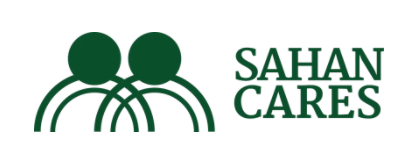
What it is: Sahan Cares provides high-quality caregiver services to elderly and home-bound people in the U.K.
Why I love it: This may be my new favorite company. The founder is literally driven to be the most human company in every aspect of his business.
Sahan Cares is a for-profit company but also a social enterprise with a mission to alleviate poverty and improve the socio-economic conditions of West London communities. They do this by retraining and employing people who are economically inactive, especially new immigrants to the country.
But they provide much more than training and jobs. They serve every need of new immigrants, helping them establish a presence in a new land, find housing, connect to child care and doctors, and everything else that can help them become successful. Sahan even provides counselors for employees arriving from war-torn countries.
The company has built a strong emotional connection to both customers and employees by establishing “shared meaning” as well as providing an excellent product. Sahan Cares has won awards for its demonstrated humanitarian track record.
![]()
9. Don’t take yourself too seriously.
What is it: The Irish National Police dancing across their country.
Why I love it: Because it’s impossible not to.
My friend Loretta Ní Ghabháin, Director of Lorg Media contributed this one. If you want to smile out loud please click above and watch this video.
The most serious organization in the most serious of times is having fun with us, and in one week, the film has earned more than a million views. Apparently, they did this because they accepted a challenge from the Swiss Police. Sounds like there’s good story there somewhere.
![]()
10. Be OF the community

I’ve covered a lot of ground here from restaurants to Ikea and beyond. I’d like to leave you with a final story about an individual.
I have a friend who is a local real estate agent. If you’ve read the book KNOWN, you might remember Suzy Trotta. When the pandemic hit, her home showings naturally dried up.
She learned that local hospitals could not secure enough masks to treat the deluge of new COVID patients. So she created a Facebook Group to teach people how they could quickly sew masks. She activated a community and soon more than 800 people were involved. Our little team in Knoxville (Yes, I helped, too) was delivering masks across our region and even out of the state.
Suzy probably isn’t going to go down in history for selling a house. But she became a legend by stepping up and helping our community in a time of need. She is OF the community.
Is making masks marketing? Of course it is. Great branding is about building an emotional connection between you and your customers. Mission accomplished.
![]()
Human-centric marketing wins.
The most human company wins.
Also the most human university, the most human law firm, the most human police force, the most human real estate agent. Any organization showing as a human face to their community and meeting customers at their true point of need will survive and thrive today — and beyond.
I would LOVE to hear about your favorite human-centered marketing examples … and also your challenges to transcend traditional marketing to forge your new path. Leave a comment and let me know what you think.
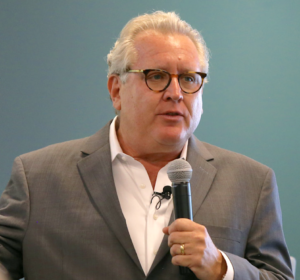 Mark Schaefer is the executive director of Schaefer Marketing Solutions. He is the author of some of the world’s bestselling marketing books and is an acclaimed keynote speaker, college educator, and business consultant. The Marketing Companion podcast is among the top business podcasts in the world. Contact Mark to have him speak at your company event or conference soon.
Mark Schaefer is the executive director of Schaefer Marketing Solutions. He is the author of some of the world’s bestselling marketing books and is an acclaimed keynote speaker, college educator, and business consultant. The Marketing Companion podcast is among the top business podcasts in the world. Contact Mark to have him speak at your company event or conference soon.
Follow Mark on Twitter, LinkedIn, YouTube, and Instagram.
Lead image courtesy Unsplash.com


